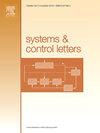非线性系统的数据驱动控制:在线顺序方法
IF 2.1
3区 计算机科学
Q3 AUTOMATION & CONTROL SYSTEMS
引用次数: 0
摘要
虽然数据驱动控制已显示出其解决复杂任务的潜力,但目前的算法(如强化学习)仍然是数据密集型的,而且往往局限于模拟环境。基于模型的学习是在实际应用中减少所需数据量的一种有前途的方法,但它也存在一个关键问题,即模型利用。在本文中,我们提出了一种基于模型学习的顺序方法,它可以避免模型利用,并在学习过程中以最少的探索实现稳定的系统行为。所倡导的控制设计利用对系统局部动态的估计来逐步改进控制。在此过程中,当需要额外数据时,程序会暂停控制合成,以收集周边区域的数据,并相应地更新模型。这种方法的局部性和顺序性是调节系统在状态-动作空间中探索的关键要素,同时也避免了模型被利用的问题,而这正是基于模型的学习控制所面临的主要挑战。通过模拟示例和物理实验,我们证明了所提出的方法只需少量试验就能从零开始快速学习到理想的控制。本文章由计算机程序翻译,如有差异,请以英文原文为准。
Data-driven control of nonlinear systems: An online sequential approach
While data-driven control has shown its potential for solving complex tasks, current algorithms such as reinforcement learning are still data-intensive and often limited to simulated environments. Model-based learning is a promising approach to reducing the amount of data required in practical implementations, yet it suffers from a critical issue known as model exploitation. In this paper, we present a sequential approach to model-based learning that avoids model exploitation and achieves stable system behaviors during learning with minimal exploration. The advocated control design utilizes estimates of the system’s local dynamics to step-by-step improve the control. During the process, when additional data is required, the program pauses the control synthesis to collect data in the surrounding area and updates the model accordingly. The local and sequential nature of this approach is the key component to regulating the system’s exploration in the state–action space and, at the same time, avoiding the issue of model exploitation, which are the main challenges in model-based learning control. Through simulated examples and physical experiments, we demonstrate that the proposed approach can quickly learn a desirable control from scratch, with just a small number of trials.
求助全文
通过发布文献求助,成功后即可免费获取论文全文。
去求助
来源期刊

Systems & Control Letters
工程技术-运筹学与管理科学
CiteScore
4.60
自引率
3.80%
发文量
144
审稿时长
6 months
期刊介绍:
Founded in 1981 by two of the pre-eminent control theorists, Roger Brockett and Jan Willems, Systems & Control Letters is one of the leading journals in the field of control theory. The aim of the journal is to allow dissemination of relatively concise but highly original contributions whose high initial quality enables a relatively rapid review process. All aspects of the fields of systems and control are covered, especially mathematically-oriented and theoretical papers that have a clear relevance to engineering, physical and biological sciences, and even economics. Application-oriented papers with sophisticated and rigorous mathematical elements are also welcome.
 求助内容:
求助内容: 应助结果提醒方式:
应助结果提醒方式:


